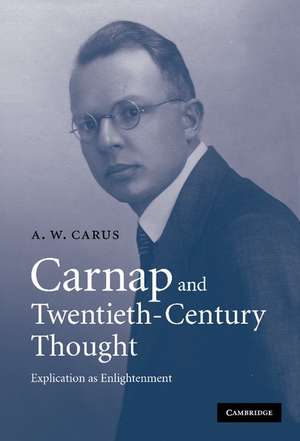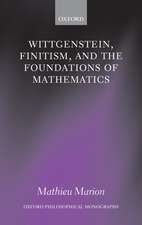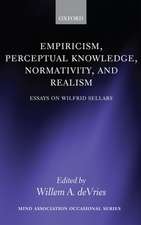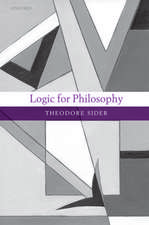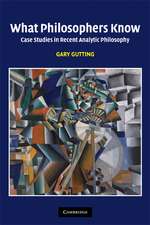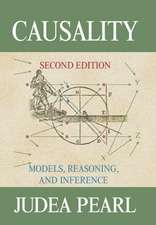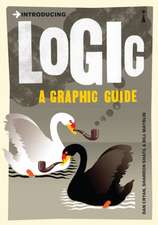Carnap and Twentieth-Century Thought: Explication as Enlightenment
Autor A. W. Carusen Limba Engleză Hardback – 12 dec 2007
| Toate formatele și edițiile | Preț | Express |
|---|---|---|
| Paperback (1) | 397.77 lei 6-8 săpt. | |
| Cambridge University Press – 10 feb 2010 | 397.77 lei 6-8 săpt. | |
| Hardback (1) | 758.22 lei 6-8 săpt. | |
| Cambridge University Press – 12 dec 2007 | 758.22 lei 6-8 săpt. |
Preț: 758.22 lei
Preț vechi: 881.64 lei
-14% Nou
Puncte Express: 1137
Preț estimativ în valută:
145.09€ • 151.99$ • 120.24£
145.09€ • 151.99$ • 120.24£
Carte tipărită la comandă
Livrare economică 08-22 aprilie
Preluare comenzi: 021 569.72.76
Specificații
ISBN-13: 9780521862271
ISBN-10: 0521862272
Pagini: 364
Dimensiuni: 152 x 229 x 24 mm
Greutate: 0.7 kg
Editura: Cambridge University Press
Colecția Cambridge University Press
Locul publicării:Cambridge, United Kingdom
ISBN-10: 0521862272
Pagini: 364
Dimensiuni: 152 x 229 x 24 mm
Greutate: 0.7 kg
Editura: Cambridge University Press
Colecția Cambridge University Press
Locul publicării:Cambridge, United Kingdom
Cuprins
Introduction; 1. The cultural inheritance; 2. The intellectual inheritance: positivism and Kantianism; 3. The grand plan of a 'System of Knowledge': science and logic; 4. Carnap's early neo-Kantianism; 5. The impact of Russell; 6. Rational reconstruction; 7. The impact of Wittgenstein; 8. The crisis of rational reconstruction; 9. Liberation; 10. Tolerance; 11. The ideal of explication.
Recenzii
'André Carus has provided a rich and thoroughly illuminating account of Carnap's development throughout the period, and with it a valuable corrective to the image of Carnap as a narrow, somewhat blinkered, logical technician.' British Journal for the History of Philosophy
Descriere
This book places Carnap's central ideas in a broad cultural, political and intellectual context.
